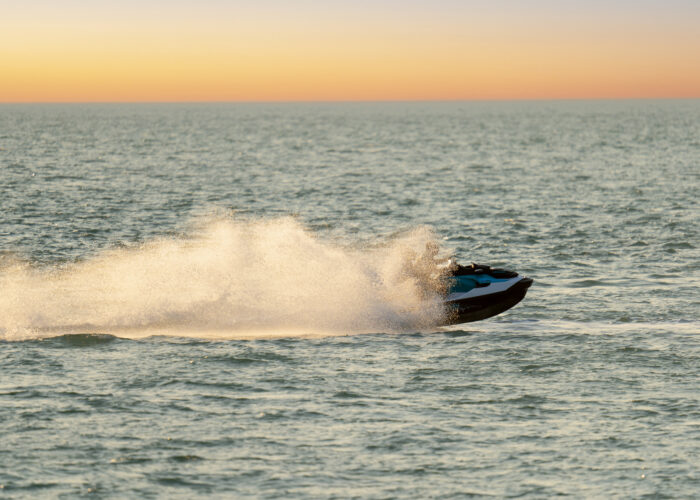
Boat Accident Lawyer in Morehead City
When someone’s carelessness causes a boat accident, serious injuries and long-term consequences often result. The boat accident lawyers at Ward and Smith are committed to helping you understand your rights and pursue the compensation you deserve. Call us at (919) 827-8475 for a free consultation in Morehead City and let us guide you through the legal process.
Understanding the Types of Injuries Often Linked to Boating Accidents
Boating is a popular activity along the North Carolina coast, especially in places like Morehead City where access to water is part of everyday life. But when something goes wrong on the water, the injuries can be serious. A day meant for fun can quickly turn into a medical emergency, and in many cases, someone’s negligence plays a role in the outcome.
Whether it’s a collision, an equipment malfunction, or an operator’s mistake, boating accidents can leave lasting damage. Some injuries are minor, but others can lead to long hospital stays, surgeries, or even permanent disability.
If you or a loved one has been hurt in a boating incident, knowing the most common types of injuries can help you better understand your situation—and what steps to take next.
Trauma from Impact
One of the most frequent outcomes of a boating crash is blunt-force trauma. This can happen when a boat hits another vessel, a dock, or a submerged object. Passengers are often thrown from their seats or collide with parts of the boat, like metal railings or hard surfaces.
These impacts can cause:
- Head injuries, including concussions or skull fractures
- Broken bones, especially in the arms, legs, and ribs
- Internal bleeding or organ damage
Unlike in cars, most boats don’t have seatbelts, airbags, or other restraints. That makes it easier for people to be thrown around or ejected from the vessel when an accident happens.
Head and Brain Injuries
Any injury involving the head should be taken seriously. In a boating accident, these injuries often occur due to falls, impacts with objects, or being struck by parts of the boat like the motor or propeller.
Traumatic brain injuries (TBIs) range in severity. A mild concussion may cause temporary dizziness and headaches. More serious TBIs can lead to long-term cognitive problems, memory loss, and changes in behavior.
It’s not always easy to recognize TBIs immediately. Symptoms can take hours or even days to appear, which is why prompt medical attention after any head trauma is essential.
Spinal Cord and Back Injuries
Injuries to the back or spinal cord are among the most severe outcomes of a boating accident. The force of an impact can compress, fracture, or dislocate the spine. These injuries are especially common in high-speed crashes or when someone dives into shallow water.
Damage to the spinal cord can result in partial or complete paralysis, depending on the location and extent of the injury. Even less severe back injuries can lead to chronic pain, limited mobility, and long-term rehabilitation.
Lacerations and Deep Cuts
Boats are filled with sharp edges, glass, fishing gear, and other equipment that can cause deep cuts when an accident occurs. If someone is thrown around during a collision or if the boat’s hull breaks apart, there’s a high risk of lacerations.
Propeller strikes are especially dangerous. When a person falls overboard near a running motor, the rotating blades can cause devastating injuries. These cuts often require stitches, surgery, or skin grafts, and the risk of infection is high.
Burns from Fire or Explosions
Though less common, fires and explosions may happen on boats. They’re usually caused by fuel leaks, electrical failures, or improper handling of flammable materials. When they occur, the injuries can be life-threatening.
Burns may vary from minor first-degree burns to deep third-degree burns requiring surgical treatment. Victims may suffer from scarring, nerve damage, and long-term pain. These accidents often result in multiple victims and chaotic rescue situations.
Drowning and Near-Drowning Events
Not all boating accidents involve visible injuries. In many cases, the greatest danger is drowning or oxygen loss due to water inhalation. This risk increases when passengers aren’t wearing life jackets or are thrown overboard unexpectedly.
A near-drowning incident can still lead to serious complications. If the brain goes without oxygen for too long, it can cause permanent damage. Victims may experience memory loss, motor function issues, or even enter a coma.
Children are especially at risk, but even strong swimmers can struggle in rough waters or after suffering a blow to the head.
Hypothermia and Cold-Water Injuries
Boaters who fall into cold water may suffer from hypothermia, even if they aren’t far from shore. Cold temperatures can quickly lower body heat, leading to confusion, muscle weakness, and, in extreme cases, unconsciousness.
This type of injury is more common during the cooler months or in deeper offshore waters. It’s also more likely to affect those who are in the water for an extended period due to delayed rescue or poor visibility.
Emotional and Psychological Effects
While physical injuries are easier to see and treat, boating accidents can also take an emotional toll. Survivors may experience anxiety, depression, or symptoms of post-traumatic stress. These issues may arise after a serious injury, a near-death experience, or witnessing someone else get hurt.
Mental health challenges are often overlooked in injury claims, but they are serious injuries and can impact daily life. Treatment may involve therapy, medication, or other support.
Why Knowing the Type of Injury Matters
Understanding the specific injury sustained in a boating accident can guide the legal and medical process. Different injuries require different types of treatment, recovery timelines, and financial support. Some may result in temporary disability, while others could affect someone for the rest of their life.
From a legal perspective, the nature of the injury helps determine:
- How much compensation is needed for medical care
- Whether future treatment or home modifications are necessary
- The level of pain and suffering endured
- How much work was missed and if a return is possible
Each of these elements plays a role in building a personal injury case.
Get the Help You Need with a Boat Accident Attorney
Boat accidents can be overwhelming, but you don’t have to face them alone. The boat accident attorneys at Ward and Smith are ready to help you pursue the compensation you need and hold responsible parties accountable. Reach out to us today at (919) 827-8475 for a free consultation and let us guide you through the legal process.
Featured News
View All
